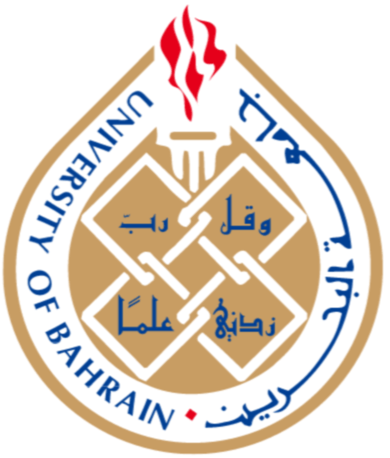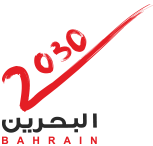NEWS
Within The Framework of Scientific and Technical Cooperation With CERN Dr. Al-Ansari Confirms: Bahraini Youth Are Capable of Making Effective Research Contribution in The Most Important Scientific Forums

Sakhir – University of Bahrain (Khadijah Abdusalem)
24 June 2023
The President of the University of Bahrain (UoB), Dr. Fuad Mohammed Al-Ansari, confirmed the capability of ambitious Bahraini youth to work and interact positively with the most important and prestigious international scientific forums, whether universities or advanced research centers.
Dr. Al-Ansari praised the achievements of the distinguished students of UoB, who are on scholarships to study and train in a global multidisciplinary environment at the forefront of engineering, technology, and physics, the European Organization for Nuclear Research (CERN), for their contribution to the transfer of knowledge, advancing innovation and progress, and creating positive change through innovative technologies that address existing global challenges in the industry, thus achieving honorable results that led to the College of Information Technology completing a project in the field of data processing, and the College of Engineering completing a project to design and build an automatic crane for the maintenance of the muon detector. Dr. Al-Ansari stated that work will continue on the implementation of three projects, two by the College of Engineering in the field of sensors by Hassan Al-Jamea, a master’s student in electrical and electronic engineering, and the cooling project in the muon detector by the research and teaching assistant in the Department of Mechanical Engineering Ali Marzooq, while the third project is by the College of Information Technology in the field of increasing the performance of data analysis programs by the research and teaching assistant Abdullah Ibrahim Sabah.
He further added that the National University’s partnership to implement cooperation projects with CERN will open the possibility for training national cadres through research and technical projects, to contribute to knowledge production and technology development worldwide.
Moreover, he stated that the University is working to expand the scope of cooperation to include more training opportunities in a number of technical fields, and to offer academic programs in postgraduate studies in cooperation with the Organization. The cooperation agreement will open the way for numerous local parties to contribute to this project through funded research channels or direct financing.
Dr. Al-Ansari pointed out that the University has recently worked on developing a plan to continue working on technical research projects with CERN, and to attract new researchers to increase the number of employees and students who will have opportunities for training and education in the largest laboratory in the world. As work is currently underway on a project for cooperation in the field of cybersecurity by the College of Information Technology, in addition to sending new trainees from the College of Engineering to complete work on sensors projects, and the cooling of the detector using carbon dioxide, in addition to the ambitious plan to further work on the parallel computing project using a GPU.
It is noteworthy that students from UoB have previously participated in the summer training activity at CERN – after competing with applicants from all over the world for this opportunity, as seven students have been able to join the summer training program at CERN since 2016.
This summer (2023), three of the University’s students joined summer training, namely: Amal Ali Marzooq, from the College of Science, Hamza Mohammed Darwish from the College of Engineering, and Abdulrahman Aref Al-Marzooqi, from the College of Information Technology.
In the same context, Dr. Al-Ansari pointed out that the Colleges of Engineering, Information Technology, and Science have launched and adapted some of their postgraduate academic programs to require the student to conduct a technical research project related to the industry, in cooperation with the muon detector experiment, and spend at least one year working on the research project at CERN. Stressing that the programs primarily aim to benefit from CERN doctoral programs, in addition to focusing on research and technical projects that use modern technologies that are related to the industry, in line with the Kingdom of Bahrain’s Vision 2030, which stipulates the promotion of this aspect.
Within the University President’s visit to the muon detector laboratory, to sign the international scientific and technical cooperation agreement in high energy physics between the Kingdom of Bahrain and CERN, he was briefed on the automatic platform that bears the flag of the Kingdom of Bahrain, as it was designed and manufactured using aluminum manufactured in the Kingdom, and implemented by staff of the College of Engineering, in cooperation with the muon detector experiment, and the Shaikh Ebrahim Al Khalifa Center for Culture and Research, after fully assembling its parts and using it in the maintenance of the large Compact Muon Solenoid (CMS).











